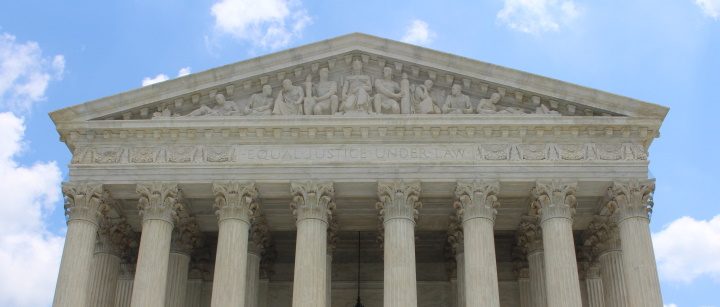Supreme Court’s Decision on Universal Injunctions Could Impact Birthright Citizenship Rights

In a significant ruling issued on June 27, the U.S. Supreme Court affirmed the Trump administration’s request to partially lift nationwide injunctions that had halted the implementation of an executive order aimed at altering birthright citizenship for children born in the United States. Justice Amy Coney Barrett, a Trump appointee and author of the majority opinion, emphasized that the “universal injunctions” imposed by lower district courts likely exceeded the equitable authority granted to federal courts by Congress.
The case originated from three previous decisions in which district courts sided with plaintiffs claiming that Trump’s executive order, executed on January 20, violated the 14th Amendment of the U.S. Constitution. This amendment guarantees citizenship to all individuals born or naturalized in the U.S., a provision originally designed to secure rights for formerly enslaved people. Although the primary goal of the ruling has been contested, its implications resonate with longstanding debates over citizenship rights in America.
Trump’s executive order posited that the 14th Amendment’s citizenship clause would not apply to children born to parents who are in the country illegally or holding temporary visas. Although the Supreme Court opted not to address the constitutional merits of the order during this ruling, the 6-3 vote aligned along ideological lines curtailed the ability of federal district judges to issue sweeping nationwide injunctions. This decision significantly narrows the scope of judicial relief that could previously shield the entirety of the population from a government policy.
Following the ruling, the president hailed it as a landmark victory for constitutional order and the rule of law, arguing that it re-established appropriate boundaries on judicial overreach. Over time, such injunctions had been utilized as checks on the policies of both Republican and Democratic administrations in various contexts.
Moving forward, Barrett’s opinion indicated that Trump’s executive order could become effective 30 days after the ruling, subject to lower courts reassessing the appropriateness of narrower injunctions. Trump’s legal team was tasked with determining enforcement measures for the policy in light of the ongoing litigation, which is expected to further unfold in the upcoming Supreme Court term starting in October.
The decision not only invites legal interpretations that could lead to class-action lawsuits but also illuminates the challenges posed by the evolving nature of citizenship policies. Legal experts have pointed out that the current landscape could cultivate a potentially fragmented system of citizenship within the United States, particularly if class-action attempts to challenge the federal policy do not succeed. Further analysis suggests that the implications of this ruling could reach far beyond the immediate execution of Trump’s executive order, potentially reshaping the understanding of citizenship rights for future generations.
As the debate continues, the opportunity to engage in productive discussions surrounding immigration policies and citizenship rights is essential for forging a balanced approach that embraces the United States’ commitment to equality and justice for all.
#PoliticsNews #MiddleEastNews






